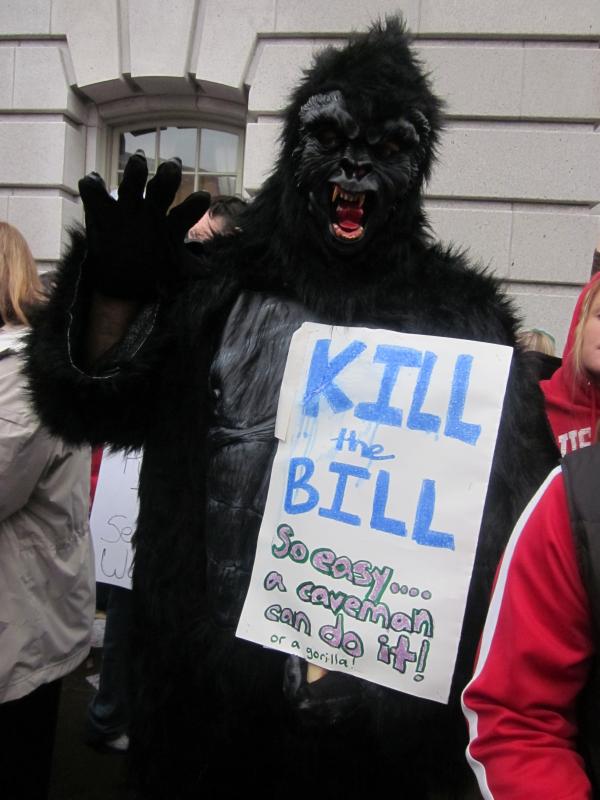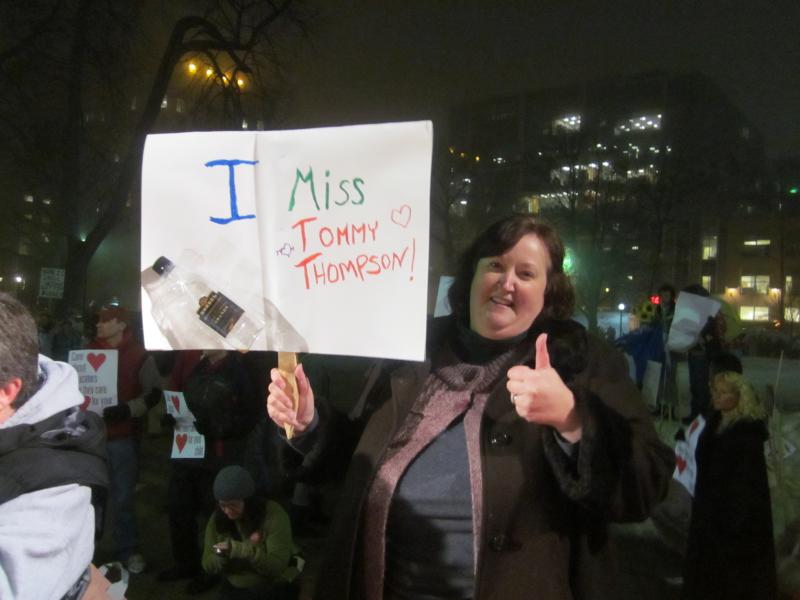 9:30 p.m. - IN THREE WORDS: DECEPTIVE, DISHONEST, DESTRUCTIVE
9:30 p.m. - IN THREE WORDS: DECEPTIVE, DISHONEST, DESTRUCTIVE
Mary Bottari: Outside the capitol, I bumped into UW Professor (Law, Political Science, Sociology, Public Affairs) Joel Rogers and asked him to explain the budget number to me. The national media can't seem to decide if Wisconsin has a budget deficit or not, or whether $30 million in concessions being demanded from workers is significant or not. Rogers explained that the $3.5 billion shortfall projected over the next biennium is about half what the one projected last time, which Wisconsin survived, and that $30 million was both trivial and dwarfed by new concessions unions had already offered to make. Says Rogers, "you just can't make sense of this as a deficit reduction strategy. It's a political strategy. Destroy public sector unions and you destroy the campaign organization of your opposition, Democrats. Of course he won't ever just say this." Rogers thinks the budget repair bill is "in three words: deceptive, dishonest, destructive. Deceptive because its not what people elected him to do. He's got no mandate to take away worker rights. Dishonest because unions are really not the source of our budget problems. A lousy national economy is, and unions are anxious to work with him in surviving in it. They're really not the problem, but can be part of the solution. And it's destructive because their help is needed. Nothing is gain by blowing up a 50 year tradition of public sector collective bargaining that was born in Wisconsin and gives a lot of people a great deal of civic pride."

 Despite Governor
Despite Governor  9:30 p.m. - IN THREE WORDS: DECEPTIVE, DISHONEST, DESTRUCTIVE
9:30 p.m. - IN THREE WORDS: DECEPTIVE, DISHONEST, DESTRUCTIVE Although federal collective bargaining laws protect private sector employees, Wisconsin has been a leader in extending those rights to the public sector. The American Federation of State, City and Municipal Employees (
Although federal collective bargaining laws protect private sector employees, Wisconsin has been a leader in extending those rights to the public sector. The American Federation of State, City and Municipal Employees ( 10:10 p.m. - GOOD OLE DAYS
10:10 p.m. - GOOD OLE DAYS